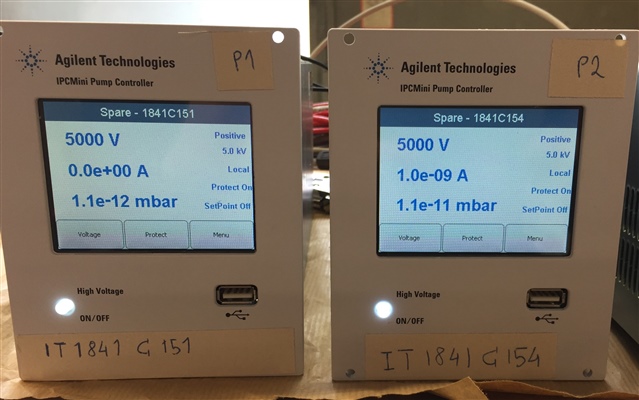We noticed that the Setpoint contact of several IPCMini opens for some minutes every 32 days, although the current is well below the Setpoint.
The Setpoint is 1e-5A (or 10 uA).

After waiting for more than 30 minutes with that strange behaviour, the 5 kV high voltage was switched OFF and ON again and the Setpoint contact closed as was expected.
See the video below.
W
Is this a software bug?
